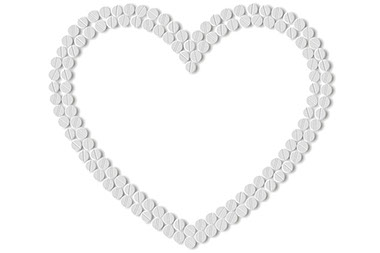MEDICAL NEWS
Can an aspirin a day
prevent a heart attack or stroke?

Scientific evidence shows that taking an aspirin daily can help prevent a heart attack or stroke in some people, but not in everyone. It also can cause unwanted side effects.
According to Dr. Robert Temple at the FDA, one thing is certain: You should use daily aspirin therapy only after first talking to your doctor, who can weigh the benefits and risks.
Who Can Benefit?
“Since the 1990s, clinical data have shown that in people who have experienced a heart attack, stroke or who have a disease of the blood vessels in the heart, a daily low dose of aspirin can help prevent a reoccurrence,” Dr. Temple said. (A dose ranges from the 80 mg in a low-dose tablet to the 325 mg in a regular strength tablet.) This use is known as “secondary prevention.”
However, after carefully examining scientific data from major studies, FDA has concluded that the data do not support the use of aspirin as a preventive medication by people who have not had a heart attack, stroke or cardiovascular problems, a use that is called “primary prevention.” In such people, the benefit has not been established but risks—such as dangerous bleeding into the brain or stomach—are still present.
If your doctor recommends daily aspirin to lower the risk of a heart attack and clot-related stroke, read the labels carefully to make sure you have the right product. Some drugs combine aspirin with other pain relievers or other ingredients and should not be used for long-term aspirin therapy.

Download an offline pdf file.
MEDICAL NEWS ARTICLES
<
>
2021 © American Institute for Preventive Medicine - All Rights Reserved. Disclaimer | www.HealthyLife.com








